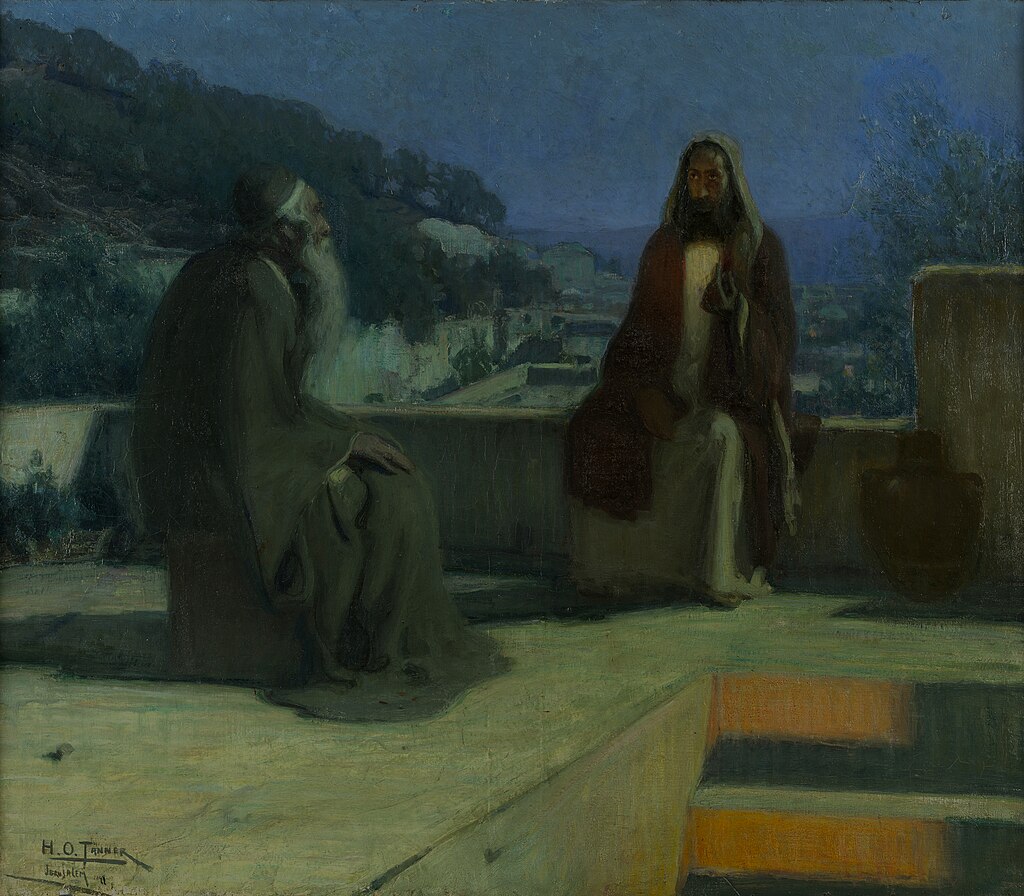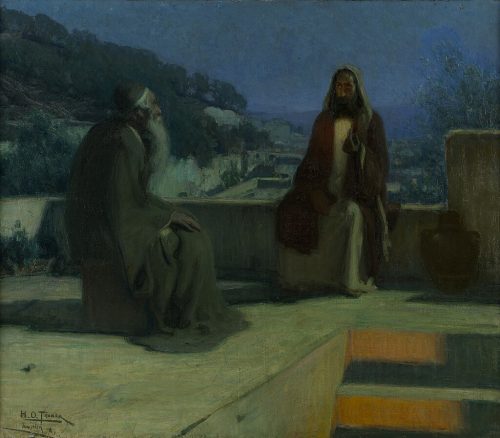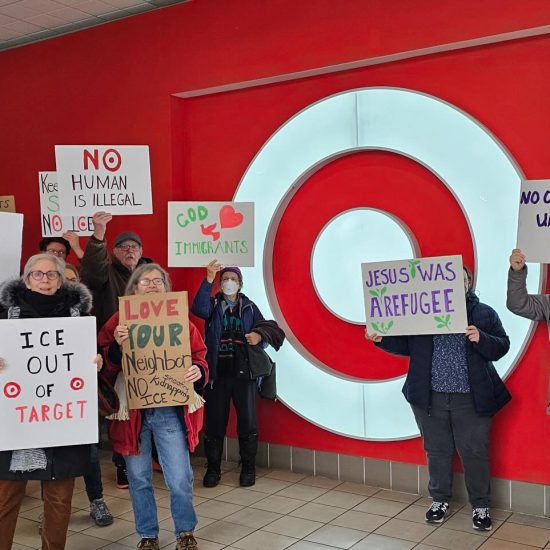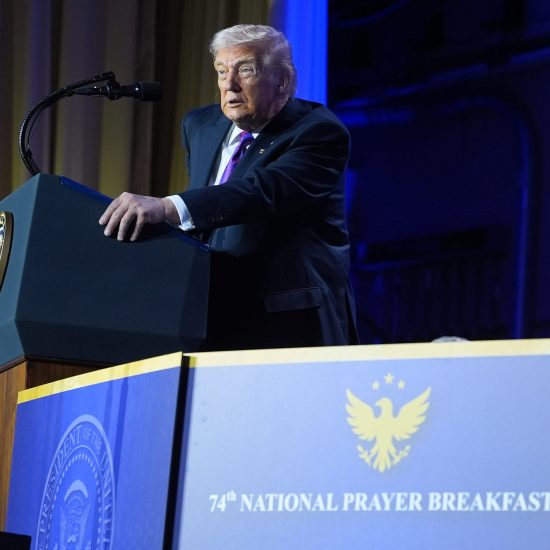
Evangelical Christian support for President Donald Trump has been above 80% in three straight elections. Evangelicals make up the largest constituency of *maga. And they maintain a determined message that they are true followers of Jesus. This suggests the question, “Would Jesus Belong to maga?”

Rodney Kennedy
The best way I have found to approach my rather unusual question is to investigate in a manner analogous to these religious/political parties of the Gospels. I think it will be illustrative to concentrate on how, why, and under what circumstances Jesus interacted with the Pharisees, Sadducees, Herodians, and Zealots. I have excluded the Essenes from the discussion due to their withdrawal from secular life and politics.
Jesus and the Pharisees
Jesus, even if invited, would not have become a Pharisee, even though he had more in common with the Pharisees than the other groups. Paul was a Pharisee. He writes of his heritage: “A member of the people of Israel, of the tribe of Benjamin, a Hebrew born of Hebrews; as to the law, a Pharisee; as to zeal, a persecutor of the church; as to righteousness under the law, blameless” (Philippians 3:5).
Originally intended to be the guardians of the Law, the Pharisees turned away from righteousness to self-righteousness. The first public mention of the Pharisees by Jesus occurs in the Sermon on the Mount. It is an inauspicious beginning for this most scrupulous of Jewish groups. “For I tell you, unless your righteousness exceeds that of the scribes and Pharisees, you will never enter the kingdom of heaven” (Matthew 5:20).
Unable to trick him, confound him, or dispute his claims, the frustrated Pharisees colluded with the Sadducees and the Herodians to kill Jesus. Jesus, for his part, didn’t trust the Pharisees or their motives. He warned his disciples, “Watch out, and beware of the yeast of the Pharisees and Sadducees” (Matthew 16:6). When the Pharisees asked Jesus for a sign, he told them the “sign of Jonah” would be their only sign.
Of course, Matthew 23 offers the damning condemnation of the Pharisees by Jesus. He dismisses them as lovers of the externals of religion, such as pomp and circumstance. “They do all their deeds to be seen by others, for they make their phylacteries broad and their fringes long. They love to have the place of honor at banquets and the best seats in the synagogues and to be greeted with respect in the marketplaces and to have people call them rabbi” (23:5–7). The Pharisees would have loved a military parade, gold-gilded offices, and a golden ballroom for festivals.
Jesus and the Sadducees
The Sadducees were the priestly party. They mixed empire politics with their Temple duties. Josephus tells us they belonged to the aristocracy of Israel: the wealthy and the powerful. Their name means to “be right and just.” But the Sadducees were the opposite of righteousness and justice.
As the officials of the Temple, under the direction of the High Priest, they oversaw the profitable moneychanger booths. Jesus, of course, upends the moneychangers with a whip and a serious condemnation. “Take these things out of here! Stop making my Father’s house a marketplace!” Older English translations are more accurate: “a den of thieves.”
The Sadducees oversaw many formal affairs of the state. Members of the Sadducees administered the state domestically, represented the state internationally, participated in the Sanhedrin (and often encountered the Pharisees there), collected taxes, equipped and led the army, regulated relations with the Roman Empire, and mediated domestic grievances.
The lethal combination of religious piety and political wealth and power made the Pharisees and Sadducees a toxic alliance. The current fascination in our culture with wealth and religious authoritarianism makes the Pharisees and Sadducees resemble a Sunday school class.

Nicodemus Visiting Jesus (1899) by Henry Ossawa Tanner in the collection of the Pennsylvania Academy of Fine Arts. (Public domain, via Wikimedia Commons)
Jesus and the Herodians
Who were the Herodians? According to many interpreters, the courtiers or soldiers of Herod Antipas were intended; others argue that the Herodians were probably a public political party who distinguished themselves from the two great historical parties of post-exilic Judaism (the Pharisees and Sadducees) by the fact that they were and had been sincerely friendly to Herod the Great, the Edomite placed as king over Judea by Rome, and to his dynasty.
The Herodians are mentioned only 3 times in the Gospels. Like the creators of Project 2025 or DOGE, they did their political work in the background. Their purpose was to protect privilege and wealth. The Pharisees and the Herodians are strange political allies. I suppose it is a matter of the enemy of my enemy is my friend sort of alliance.
There’s no surprise that the Herodians were involved in the question to Jesus about paying taxes: “Then they sent to him some Pharisees and some Herodians to trap him in what he said. And they came and said to him, ‘Teacher, we know that you are sincere and show deference to no one, for you do not regard people with partiality but teach the way of God in accordance with truth. Is it lawful to pay taxes to Caesar or not? Should we pay them, or should we not?’ But knowing their hypocrisy, he said to them, ‘Why are you putting me to the test? Bring me a denarius and let me see it.’ And they brought one. Then he said to them, ‘Whose head is this and whose title?’ They answered, ‘Caesar’s.’ Jesus said to them, ‘Give to Caesar the things that are Caesar’s and to God the things that are God’s.’ And they were utterly amazed at him” (Mark 12:13–17). The question of money, central to the Herodians, continues to haunt our best efforts to be a people of Jesus.
Jesus and the Zealots
The Zealots were a revolutionary party opposed to the Roman Empire. They believed violence was the only response to Empire. Jesus was the most anti-Zealot person of his day. His message of salvation by suffering and sacrificial death defies the atonement by violence ideology of the Zealots.
Even though one of his disciples, Simon, was a Zealot, he opposed violence in every way. To the women of Jerusalem, he said, “If they do this when the wood is green (attack him), what will happen when it is dry?” This is a refutation of the hot-headed, violent “dry wood” of the Zealots. Jesus definitely would not have joined the Zealots.
The religious/political mixture in America once again focuses on the question of where Jesus stands. No group in American history has ever more closely aligned itself with secular political power than maga evangelicals. Maga has attached itself to ideologies endangering the existence of democracy, such as escalating authoritarianism and aggressive militarism (foreign and domestic).
The new policy of blowing speed boats out of the water as “alleged” drug runners is but an extension of encroaching militarism. And on the domestic front, this ideology expands police power, legitimates unchecked toxic male power, puts federal troops in the streets of American citizens, and leads ICE agents to harass, abuse, and arrest American citizens.
There’s nothing in the character, words, or teachings of Jesus suggesting he would have joined forces with maga. They are guilty of copyright infringement — the false use of the name of Jesus for political and personal gain. Jesus has the last word: “Not everyone who says to me, ‘Lord, Lord,’ will enter the kingdom of heaven, but only the one who does the will of my Father in heaven” (Matthew 7:21).
*I have made the deliberate choice to stop using upper case for “maga” because I believe the movement has so lowered itself in fealty to Trump that the lower case is the only appropriate way to speak of this group.
Rodney Kennedy has his M.Div. from New Orleans Theological Seminary and his Ph.D. in Rhetoric from Louisiana State University. The pastor of 7 Southern Baptist churches over the course of 20 years, he pastored the First Baptist Church of Dayton, Ohio — which is an American Baptist Church — for 13 years. He is currently professor of homiletics at Palmer Theological Seminary, and interim pastor of Emmanuel Friedens Federated Church, Schenectady, New York. His eighth book, Dancing with Metaphors in the Pulpit, is out now from Cascade Books.






